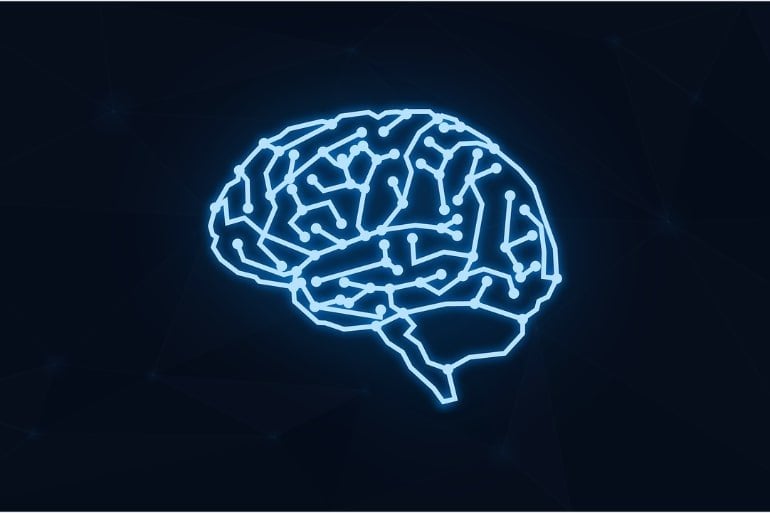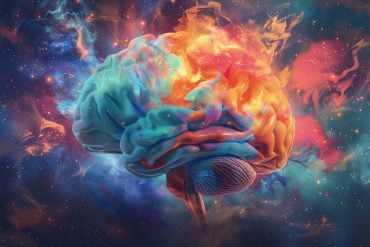Summary: Anabolic androgenic steroids, drugs commonly associated with muscle building and enhancing athletic performance, are known to increase the risk for certain health disorders. A new study reveals anabolic steroids may also accelerate brain aging.
Source: Elsevier
Anabolic androgenic steroids (AAS), a synthetic version of the male sex hormone testosterone, are sometimes used as a medical treatment for hormone imbalance. But the vast majority of AAS is used to enhance athletic performance or build muscle because when paired with strength training. AAS use increases muscle mass and strength, and its use is known to have many side effects, ranging from acne to heart problems to increased aggression.
A new study now suggests that AAS can also have deleterious effects on the brain, causing it to age prematurely.
The report appears in Biological Psychiatry: Cognitive Neuroscience and Neuroimaging.
“Anabolic steroid use has been associated with a range of medical and psychological side effects,” said lead author, Astrid Bjørnebekk, PhD, Division of Mental Health and Addiction, Oslo University Hospital, Oslo, Norway. “However, since anabolic steroids have only been in the public domain for about 35 years, we are still in the early phase of appreciating the full scope of effects after prolonged use. The least studied effects are those that relate to the brain.”
Steroid hormones readily enter the brain, and receptors for sex hormones are found throughout the brain. Because AAS are administered at much higher doses than those naturally found in the body, they could have a harmful impact on the brain, particularly over a long period of use. Previous studies have shown that AAS users performed worse on cognitive tests than non-users.
Dr. Bjørnebekk and colleagues performed magnetic resonance imaging (MRI) of the brains of 130 male weightlifters with a history of prolonged AAS use and of 99 weightlifters who had never used AAS. Using a set of data compiled from nearly 2,000 healthy males from age 18 to 92 years of age.
The researchers used machine learning to determine the predicted brain age of each of their participants and then determined the brain age gap: the difference between each participant’s chronological age and their predicted brain age. Advanced brain age is associated with impaired cognitive performance and increased risk for neurodegenerative diseases.

Not surprisingly, AAS users had a bigger brain age gap compared to non-users. Those with dependence on AAS, or with a longer history of use, showed accelerated brain aging. The researchers accounted for use of other substances and for depression in the men, which did not explain the difference between the groups.
“This important study shows in a large sample that use is associated with deviant brain aging, with a potential impact on quality of life in older age. The findings could be directly useful for health care professionals, and may potentially have preventive implications, where brain effects are also included into the risk assessment for young men wondering whether to use anabolic steroids,” added Dr. Bjørnebekk.
Cameron Carter, MD, editor of Biological Psychiatry: Cognitive Neuroscience and Neuroimaging, said of the study: “The results of this brain imaging study should be of concern for athletes using anabolic steroids for performance enhancement and suggest that the adverse effects on behavior and cognition previously shown to be associated with long-term use are the result of effects on the brain in the form of accelerated brain aging.”
About this neuroscience research news
Source: Elsevier
Contact: Rhiannon Bugno – Elsevier
Image: The image is in the public domain
Original Research: Open access.
“Long-term anabolic androgenic steroid use is associated with deviant brain aging” by Astrid Bjørnebekk, et al. Biological Psychiatry: Cognitive Neuroscience and Neuroimaging
Abstract
Long-term anabolic androgenic steroid use is associated with deviant brain aging
Background
High-dose long-term use of anabolic-androgenic steroids (AAS) may cause a range of adverse effects, including brain and cognitive abnormalities. We performed age prediction based on brain scans to test whether prolonged AAS use is associated with accentuated brain aging.
Methods
T1-weighted MRI (3D MPRAGE) scans were obtained from male weightlifters with a history of prolonged (n=130) or no (n=99) AAS use. We trained machine learning models on combinations of regional brain volumes, cortical thickness and surface area in an independent training set of 1838 healthy males (18-92 years) and predicted brain age for each participant in our study. Including cross-sectional and longitudinal (mean interval 3.5 years, n=76) MRI data, we used linear mixed effects (LME) models to compare the gap between chronological age and predicted brain age (the brain age gap, BAG) between the two groups, and tested for group differences in the rate of change in BAG. We tested for associations between apparent brain aging and AAS use duration, pattern of administration and dependence.
Results
AAS users had higher BAG compared to weightlifting controls, which was associated with dependency and longer history of use. Group differences in BAG could not be explained by other substance use, general cognitive abilities or depression. While longitudinal analysis revealed no evidence of increased brain aging in the overall AAS group, accelerated brain aging was seen with longer AAS exposure.
Conclusions
The findings suggest that long-term high dose AAS use may have adverse effects on brain aging, potentially linked to dependency and exaggerated use of AAS.






